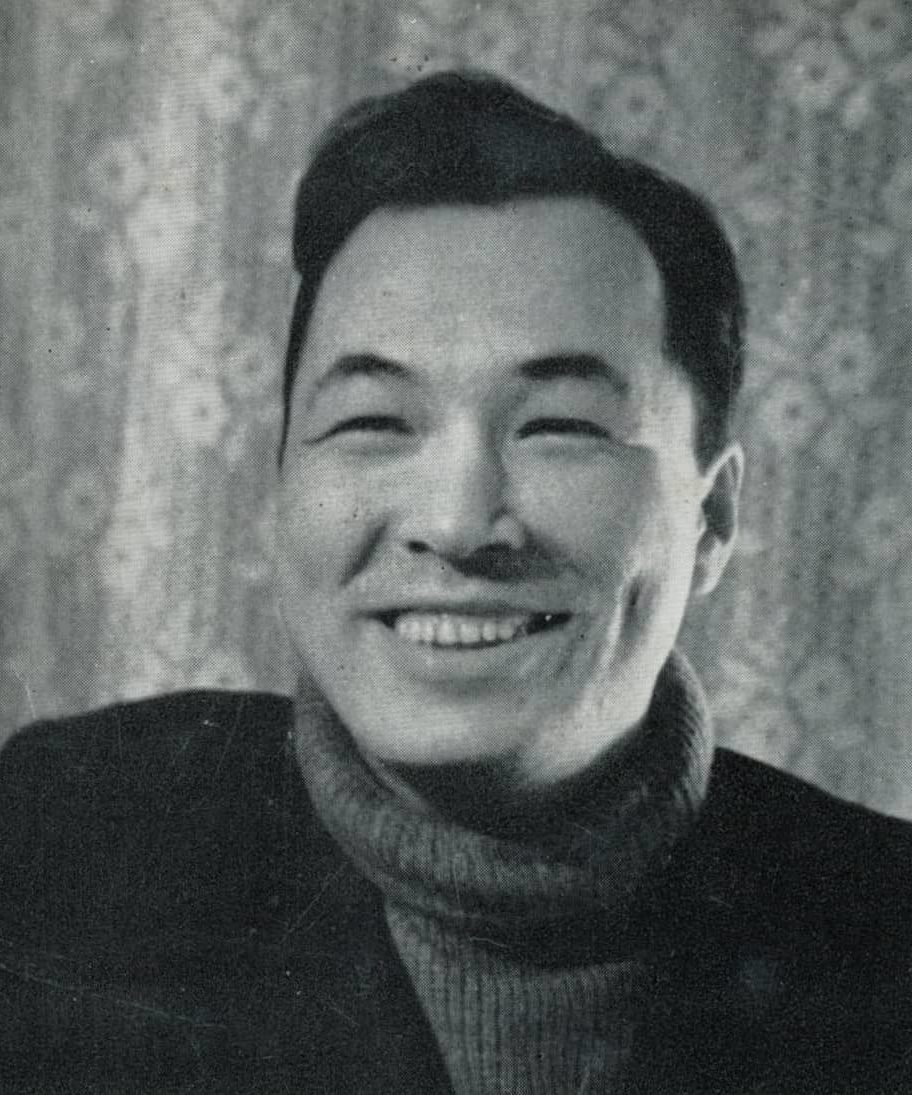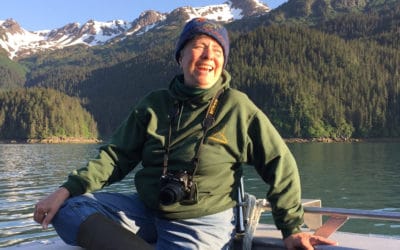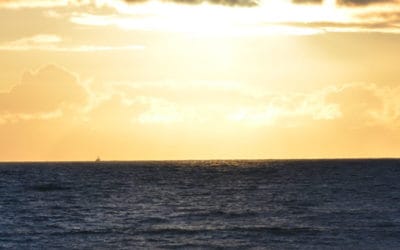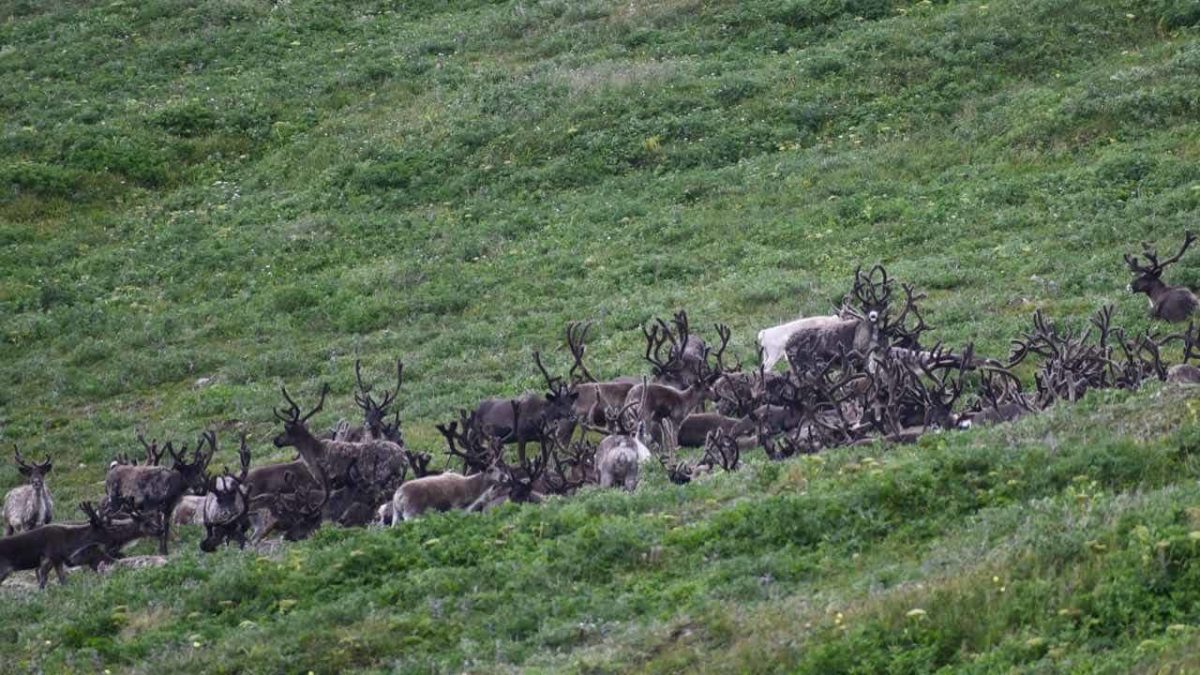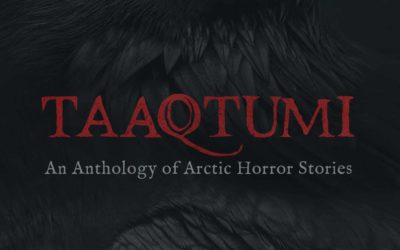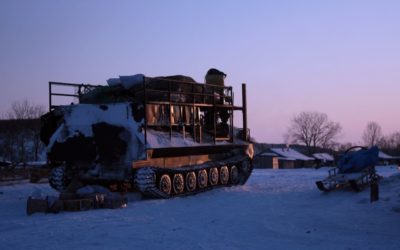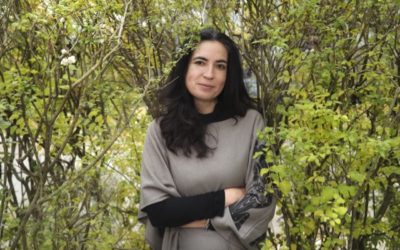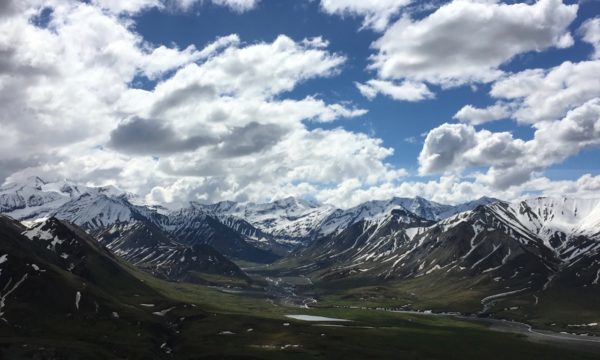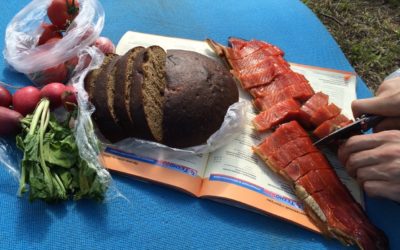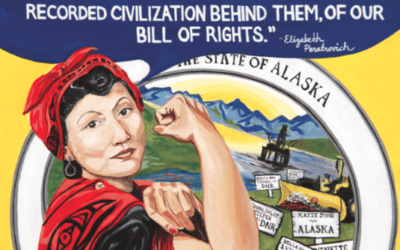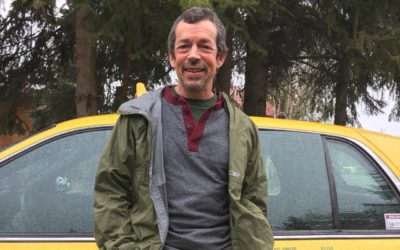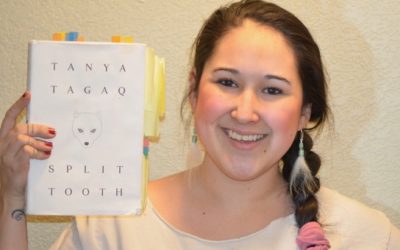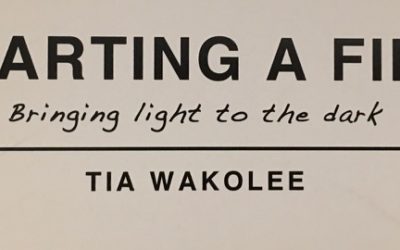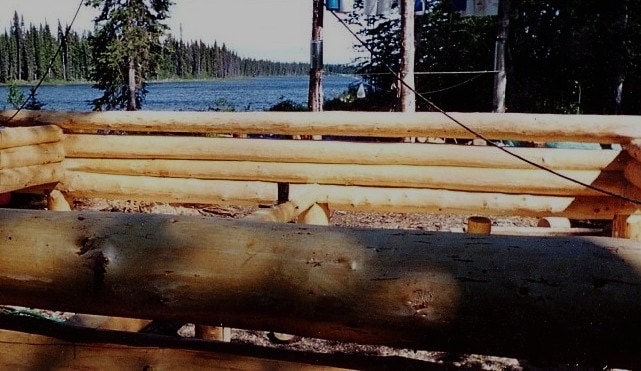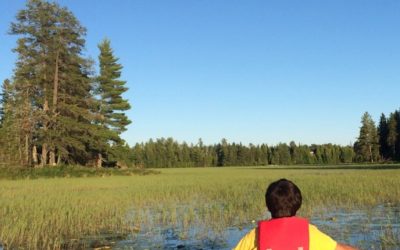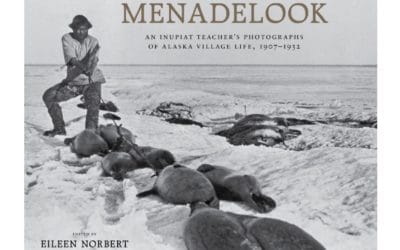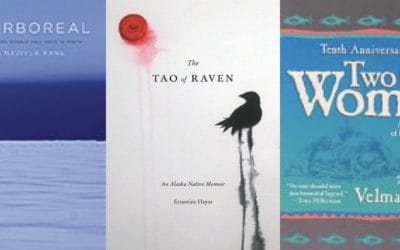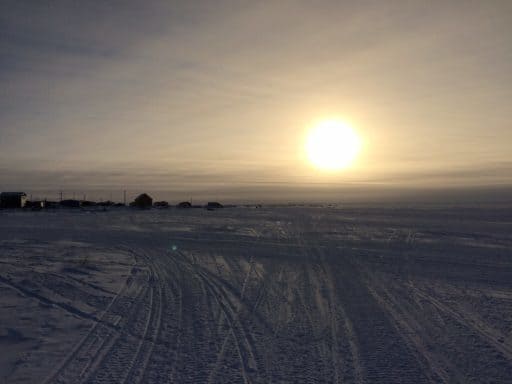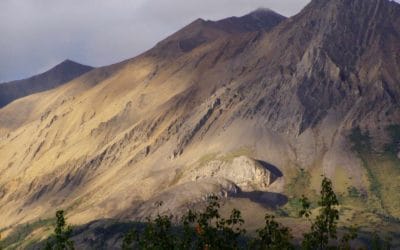Reviews of Books and Other Media
What are the outstanding works of history, art, science and literature pertinent to rural Alaska, and who are the agencies, companies, and individuals producing them?
Yuri Rytkheu: Review of When the Whales Leave and other Chukchi stories of the far North
When the Whales Leave is a stunning, elegiacal creation story from one of Russia’s foremost Indigenous authors. Written by Yuri Rytkheu in 1975, this short, novella-length fable connects Indigenous cultures across Alaska and the circumpolar North with its attention to details of history and ecology. The book includes an introduction by Gretel Erhlich, and historical notes from translator Ilona Chavasse.
Under Nushagak Bluff and the shadow of pandemic in Alaska literature: Review of Mia C. Heavener’s debut novel
Seagulls swoop and dive, crying in the salty air. The waves of Nushagak Bay crash on sandbars and rocky shores. Machines rattle the warehouses on the cannery side of the village “where the beach flattened and the boardwalks grew tall.” So many sounds; so many stories. Yet as I page through Mia Heavener’s new novel Under Nushagak Bluff under the long shadow of the COVID-19 pandemic, it is the novel’s subtle and steady investigation of silence that most captivates me.
Stories that Connect: Review of Mostly Water by Mary Odden
Water flows over and through the pebbles on the cover of Mostly Water: Reflections Rural and North. Water connects. Mary Odden, a long-time resident of rural Alaska, has graced us with this collection of essays written over the course of her many years in various regions of rural Alaska. Built upon each other with love, these anecdotes articulate connections between people, animals, land, sky, water, music, and memory. It’s an intimate book, and not a skimmable one. Nuggets of humor and irony randomly appear like brown sugar in the most unexpected places, and you won’t want to miss them.
Crossing Borders: Review of Floating Coast by Bathsheba Demuth
Floating Coast reads like a wave, moving from ocean to shore on both sides of the Bering Strait, from ocean to ice to land, then up the rivers, and then underground, then spilling back out to the sea. Floating Coast is a . . .
An Interview with Julia Phillips, Part 3
“It is an extraordinary betrayal of a national promise to care for, that the state will care for the people and its land. And . . . that the state has said “Yes, we are here, you can depend on us. Put aside your traditional ways of gathering food or of looking out for each other. Because we are here now, . . . to . . . supplant your economy with our economy now, so you can depend on it and we’ll be there.” And then for that state to disappear, is deadly. It’s really deadly.”
Review of Taaqtumi: An Anthology of Arctic Horror Stories
Dogs, blizzards, and ice dominate the dark landscape of Taaqtumi, An Anthology of Arctic Horror Stories. A supporting cast of zombies, nanurluk (giant polar bear), snowmobiles, and more, round out these horror stories from the far North. Traditional Iñuit storytelling and modern literary styles . . .
An Interview with Julia Phillips, Part 2
In this episode, we dive into specifics about the author’s identity and experience as a white American woman from New York City, observing rural and Indigenous Russians of Kamchatka in their day-to-day lives. We hear her reflections about time spent in rural Kamchatka, traveling with dogsled teams, reindeer herding families, and gathering wild foods. We reflect on circumpolar questions about the ocean’s fish supply after Fukushima,
While Nanabijou Sleeps: Tanya Talaga on racism and survival of Indigenous youth
Three hours north of Thunder Bay, Ontario, Armstrong had several large new homes situated on a rise above the town, each with a law enforcement vehicle parked in the driveway. Below these houses, most of the community lived in older, smaller, rundown homes. We wondered about the relationship between these officers in “Armstrong Heights” and the rest of the community, given
An Interview with Julia Phillips, Part 1
Welcome to our podcast, Salmonberries, where we bring you stories, interviews, and discussions from across the circumpolar North to surprise, delight, and build community. Our inaugural podcast features an interview with author Julia Phillips, who wrote the debut novel Disappearing Earth . . . As I read it, I kept thinking of all the ways it is relevant to Alaska. I was so excited by the author’s approach to storytelling . . .
Women of Kamchatka: Review of Disappearing Earth by Julia Phillips
Set in the Kamchatka peninsula of far northeastern Russia, debut novelist Julia Phillips writes in Disappearing Earth about the interior worlds of women, the importance of community, and the impacts of gender-based violence on both, with a depth of human insight reminiscent of Tolstoy. The story opens with the kidnapping of two young Russian girls . . .
Civil Rights Heroine: Review of Fighter in Velvet Gloves by Annie Boochever with Roy Peratrovich Jr.
Elizabeth Peratrovich’s history-making speech before the Alaska Senate in 1945 persuaded passage of America’s first state anti-discrimination act, nearly 20 years prior to Title VII of the US Civil Rights Act. Boochever’s concise, sensitively written, historical teen non-fiction book Fighter in Velvet Gloves conveys Peratrovich’s positive can-do life attitude . . .
Review of One Water: dispatches from the streets and backcountry of Interior Alaska by Rob McCue
Rob McCue’s One Water is a refreshingly interior account, not only because the first person narrator reports from inside the action—often the interior of the city cab he drives in half the stories—but also in the sense of “interior” Alaska, with Fairbanks as its hub and “big village.” . . . It’s a feisty guy narrative from the underserved center of the state that quickly surprises you with its inclusiveness. You never know . . .
Split Tooth Review: Expressions of the Circumpolar Arctic
A thousand stories woven into one, Tanya Tagaq expresses the expansion of our ancestry — our heritage of the land and the trauma — through beautiful poetry. She narrates a story that we can barely say out loud as Iñuit — not because we’re not allowed to and no one will listen, but because . . .
Ice, Fire, Survival in Rural Alaska: Review of Wakolee’s Starting a Fire
Tia Wakolee has done a brave and necessary thing. She has shared her stories with the world as a step in her journey of healing. She has done this in the form of a self-published book. . . Stories of surviving childhood sexual abuse in Alaska are abundant. Until recently, however, very few of these stories . . .
Isolation and Depression: The Darker Side of Rural Alaska
Nearly twenty years ago, while preparing to move to remote Alaska with my first husband, my stepmother asked me “How can you even think about moving so far away from your family and other people you love?” At the time, the calculus of my love . . .
Wild Rice and Sugar Bush: Review of Good Seeds: A Menominee Indian Food Memoir
Wild rice is a storied and staple grain throughout the upper midwest. This anthropological work about Menominee food traditions, done by Thomas Pecore Weso, a Menominee artist and anthropologist, provides a critically important perspective to understanding American food traditions . . .
Alaska Native Anthropology: Review of Menadelook, edited by Eileen Norbert
Compiled and edited by granddaughter Eileen Norbert, Menadelook: An Inupiat Teacher’s Photographs of Alaska Village Life, 1907-1932 maps cultural transition through a man who bridged two worlds in the early 20th century. Norbert succeeds in demonstrating the importance of self-representation of indigenous culture in anthropology . . .
Indigenous Women Authors: Review of The Round House by Louise Erdrich
When I first moved to a small village in rural Alaska, I would hang out in the school library. A lot. I was amazed to find so many books there, in this tiny community off the road system, where the cost of shipping goods exceeded $1/pound. Old books. New books. Lots of stories by writers I knew. Lots of history about Alaska, by writers I’d never heard of. But I struggled to find books by Indigenous women . . .
Climate Change and Climate Justice: Review of Fierce Climate Sacred Ground by Elizabeth Marino
Marino isn’t from rural Alaska, nor does she live there. But she’s spent enough of the right kind of time in the community of Shishmaref, to care deeply, and respectfully, and she brings the best of her academic skills to advocate for climate justice. With this Kigiqtaamiut ethnography, she bridges cultural gaps between realities of rural Alaska on the edge of climate change, and the churning mill of urban bureaucratic . . .
Growing Up in Rural Alaska: Review of Homestead Girl by Chantelle Pence
On a bright winter day in February, in a sunny room above the University of Alaska Bookstore in Anchorage, author Chantelle Pence talked to her audience about her first book. She, and several Athabascan speakers, discussed growing up in rural Alaska. They spoke from various perspectives. They spoke with heart. And they reached our hearts. . .

